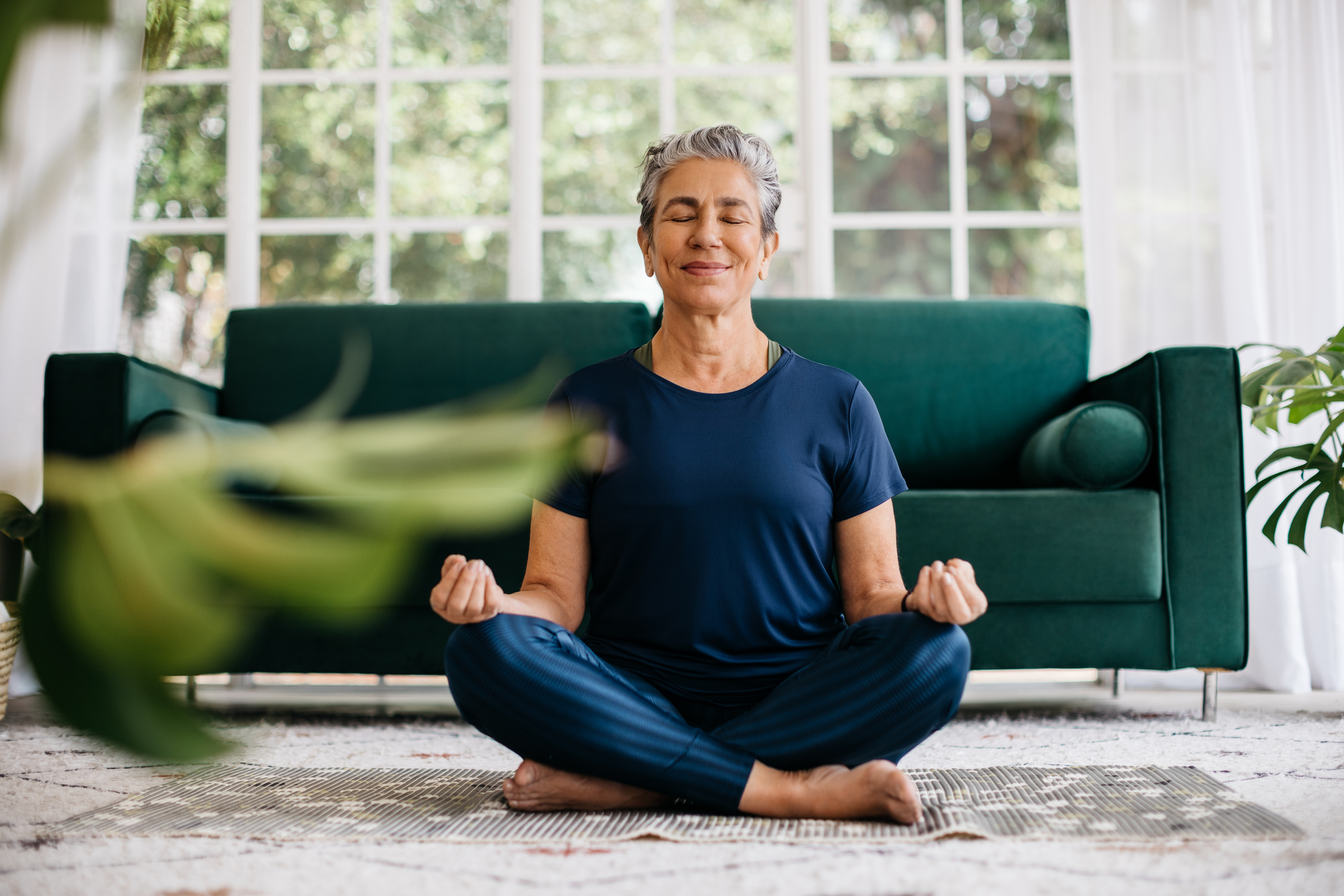

One out of every nine people over the age of 65 in the United States has Alzheimer’s disease.
Your odds of becoming one of them grow with every risk factor you may have, including smoking, unmanaged chronic conditions like high blood pressure, diabetes and hearing loss, and unhealthy lifestyle habits like a poor diet and lack of exercise, to name a few.
Some of these risk factors can be managed, while others can’t be changed…
Almost two-thirds of Americans living with Alzheimer’s are women.
But there’s one activity that most women can try (there’s no reason men shouldn’t either) that will not only help manage some of these risk factors but can actually protect your brain at the same time…
Kundalini yoga can improve memory
Yoga has been proven to reduce blood pressure and stroke risk. Researchers believe practices like yoga teach people to breathe deeply, which helps regulate blood pressure by balancing and stabilizing their nervous system and lowering their heart rate.
Previous research shows yoga can also help support good brain health. One study found women who practiced yoga had greater thickness in the region of the brain associated with cognitive functions like attention and memory.
Another study showed a specific type of breath-focused yoga, Kundalini, helped improve visual-spatial memory skills in women with mild cognitive impairment, a condition that often leads to dementia. Visual-spatial memory is used when recalling locations and navigating while you’re walking or driving.
A team of researchers at UCLA Health decided to further explore the cognitive benefits of Kundalini yoga. The goal of Kundalini yoga practice is to activate the energy stored at the base of your spine through breathing, poses, chanting and meditation, though it focuses more on breath work and meditation than poses.
The UCLA study involved two groups of women ages 50 and older who had self-reported memory issues and cerebrovascular risk factors for Alzheimer’s.
The first group did Kundalini yoga once a week for 12 weeks while the other did weekly memory enhancement training during those 12 weeks. Participants also had to do daily homework assignments.
The main improvements found in the memory enhancement training group were found in the participants’ long-term memory.
But the Kundalini yoga group participants had several improvements not experienced by the memory enhancement training group. They include:
- Significant improvement in subjective memory complaints
- Prevention in brain matter declines
- Increased connectivity in the hippocampus, an area that manages stress-related memories
- Improvement in the peripheral cytokines and gene expression of anti-inflammatory and anti-aging molecules.
Try both practices for comprehensive benefits
According to UCLA Health psychiatrist Dr. Helen Lavretsky, who led the study, the results demonstrate a combination of yoga and memory training could provide more comprehensive benefits.
“Ideally, people should do both because they do train different parts of the brain and have different overall health effects,” she says. “Yoga has this anti-inflammatory, stress-reducing, anti-aging neuroplastic brain effect which would be complimentary to memory training.”
Previous research has found that excess inflammation may be one of the single biggest threats to brain health.
If want to give Kundalini yoga a try and have a health condition, as with any exercise, it’s a good idea to run it past your doctor. But since Kundalini focuses less on poses and more on more on breathing and meditation, you’ll probably get the all-clear.
Like many yoga practices, Kundalini yoga can be challenging to do on your own. The best way to get started is to find a class that’s local to you. A simple Google search turned up several Kundalini yoga classes in my area.
If you have trouble finding a class, there are guides and videos online that can help you. Here is an example of a 10-minute beginner Kundalini practice that’s specifically geared toward women. And Yoga Journal has an introduction to Kundalini yoga here.
Sources:
Yoga provides unique cognitive benefits to older women at risk of Alzheimer’s disease, study finds — EurekAlert!
Cognitive and immunological effects of yoga compared to memory training in older women at risk for Alzheimer’s disease — Translational Psychiatry
Alzheimer’s Disease Facts and Figures — Alzheimer’s Association
Causes and Risk Factors for Alzheimer’s Disease — Alzheimer’s Association

